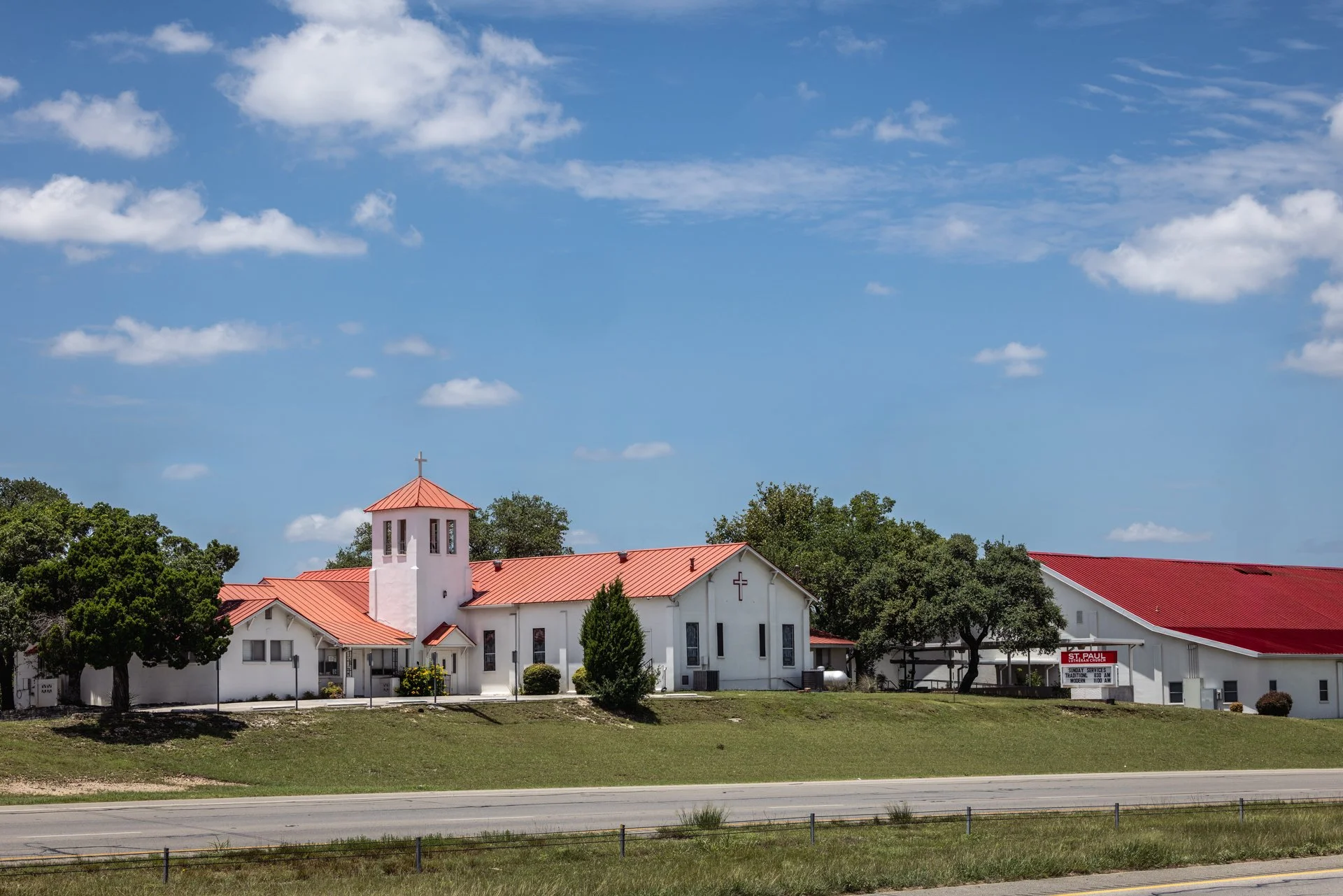Sunday Worship Services 8:30am Traditional Service 9:45am Sunday School 10:45am Modern Service
“Deeply Rooted Since 1901”
Welcome to St. Paul Lutheran Church of Bulverde!
We believe the church is not defined by walls, but by people, rooted deeply in the Living Water of the Holy Spirit and flowing out to bless the world around them. We want to see friends, family, neighbors, and co-workers come to know the forgiveness, love, and eternal life of Jesus Christ, our King.
Whether you’ve walked with God for years or are searching for hope, we invite you to join us as we grow deeper in faith and experience His power and presence in our lives.
You Are Welcome!

Current Sermon Series
Missed last weeks message? Don’t worry, you can catch up on our current sermon series or past messages by clicking the link to the left. Hit the subscribe button below to be notified any time we’re streaming online

GRACE & GRIT
Welcome to Grace & Grit, the pastor’s blog reflecting on Christian life in all its beauty and struggle. Here you’ll find conversations about faith that are both grounded in grace and tough enough for the real world.
What is Christmas all about?
Here are seven plain statements from the New Testament about why Jesus came:
1. “You shall call his name Jesus, for he will save his people from their sins.” (Matthew 1:21)
Christmas begins with sin and the promise of rescue. Sin and the promise of rescue is basically the overarching theme of the Hebrew Scripture too, among dozens of others.
2. “The Son of Man came to seek and to save the lost.” (Luke 19:10)
Lostness is real. Even the most glorious passages about God's love typically portray the danger of spiritual lostness right alongside the good news of rescue. Amnesty has been declared, but amnesty is only available for those who step into it.
3. “The Son of Man came not to be served but to serve, and to give his life as a ransom for many.” (Mark 10:45)
Jesus came for a purpose that nobody could accomplish but him. The term ransom comes from the slave market and describes a wealthy benefactor buying someone out of enslavement or captivity into a new life.
4. “God did not send his Son into the world to condemn the world, but in order that the world might be saved through him.” (John 3:17)
The specific purpose of Jesus' "first coming" was the work of salvation for "the world." It's worth noting, however, that the Second Coming of Jesus is specifically framed as salvation for God’s people and judgment for God’s enemies. The time of amnesty we are currently living in is meant for us to become children of God rather than his enemies. Have you?
5. “I have come down from heaven, not to do my own will but the will of him who sent me.” (John 6:38)
Christmas is about obedience to the Father and His very specific, very determined plan. There was no other way that salvation was going to ever be accomplished from the beginning of time. Jesus is the Lamb "slain from the foundation of the world." This still makes my soul sing over the wisdom and power and sovereignty of God.
6. “Christ Jesus came into the world to save sinners, of whom I am the worst.” (1 Timothy 1:15)
If Christmas doesn’t confront sin, it doesn’t announce salvation. And if Jesus didn’t come to save sinners, He didn’t need to come at all.
7. “The reason the Son of God appeared was to destroy the works of the devil.” (1 John 3:8)
Christmas is the opening salvo in the final war against the Devil. God declared it in Genesis 3:15 and He has made it so. The baby in the manger grows into the King who crushes the serpent’s work of sin, death, lies, and bondage. Christmas is not God overlooking sin or adjusting His expectations, but God entering the world to confront what has enslaved it. The child in the manger is the Savior who comes to save sinners, and the Son who appears to destroy the works of the devil. That means Christmas is good news PRECISELY because something has gone terribly wrong, and God refuses to leave it that way.
BUT!
The FEEL of Christmas is nothing but invitation, wonder, and hope. How can you be afraid when God has made himself so thoroughly and beautifully KNOWN??
So come to the manger and see this baby destined to be King!


